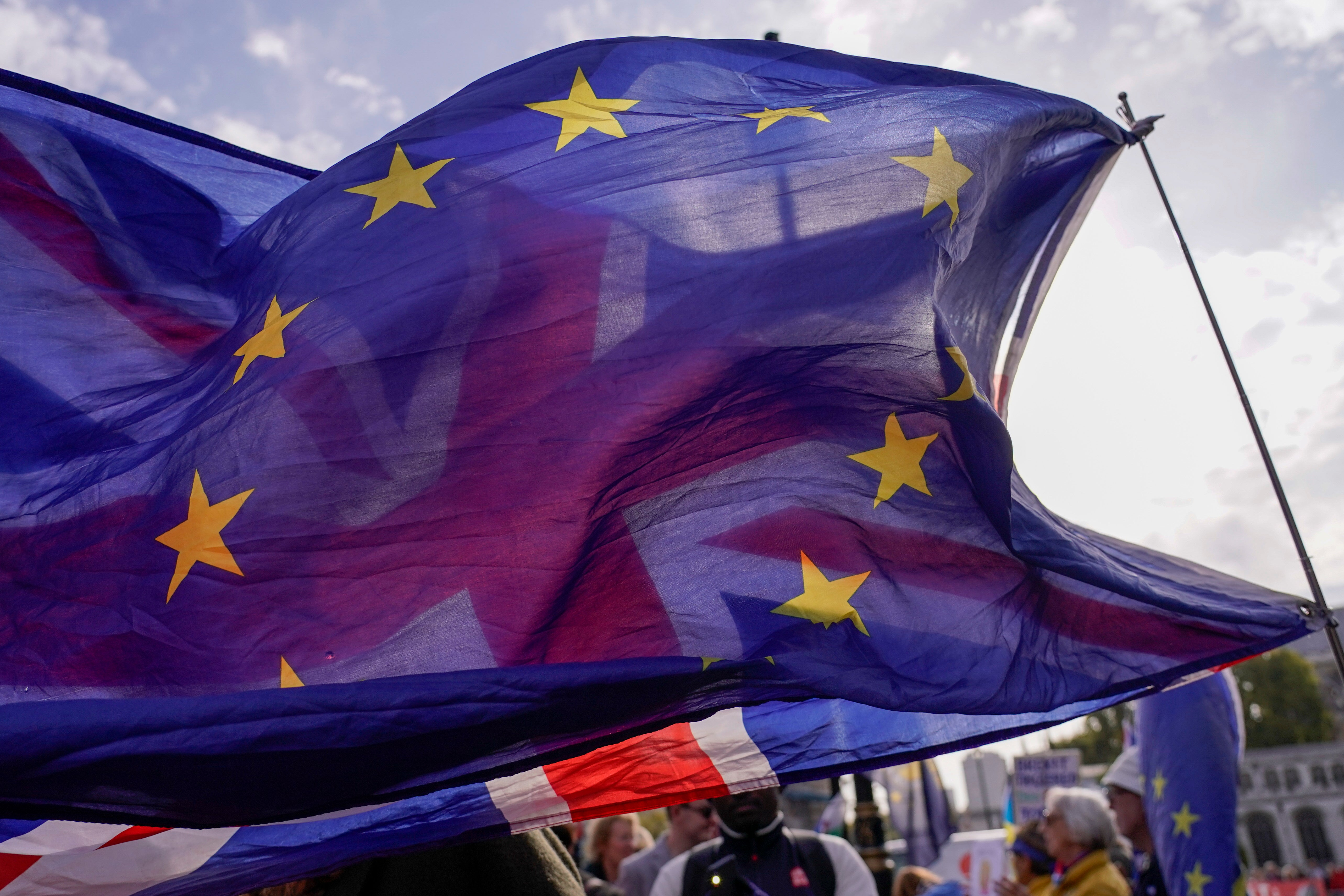Liz Truss’s downfall marks a turning point in the history of Brexit
The tide of opinion is turning away from the 2016 EU withdrawal vote, writes Andrew Woodcock


When history looks back on the resignation of Liz Truss, it may not simply be registered for the oddity of ending the shortest tenure in Downing Street, but also for marking a significant turning point in the life of the UK.
For the agenda which Truss so spectacularly failed to impose on the UK represented the dreams of a certain kind of Brexiteer whose star may now permanently be on the wane.
Her disastrous mini-Budget package was exactly the mix of tax-cutting and deregulation which this group believed would allow the UK to become a high-growth Singapore-on-Thames after escaping the restrictions of EU membership.
The fact that this concoction was so emphatically rejected not just by the very markets which the right revere as arbiters of truth, but also by the British public, makes clear that there is vanishingly little appetite for this particular version of Brexit.
But if the promise of a buccaneering Britain conquering the world by slashing tax and removing social, workplace and environmental protections is gone, what is left of Brexit?
The desire to reduce immigration which motivated many Leave voters was already being sidelined by Truss, as she recognised what business has always said – that easy movement of workers from overseas is one of the biggest drivers of growth in the modern world.
And the aim of shaking off rules made in Brussels appears to be going nowhere, either in Northern Ireland, where the UK seems to be edging towards compromise over the border spat, or in the rest of the country, where ministers have struggled to find red tape worth putting on the bonfire and companies have continued to comply with EU standards for the sake of business efficiency.
So, with little to show for the great revolution of the past six years other than depressed exports, longer queues and more form-filling, it is little surprise that the tide of public opinion is now firmly moving towards the conclusion that Brexit was a mistake.
Since early 2020, only a handful of polls – taken during the early stages of the Covid vaccine rollout – have recorded majorities saying it was right for the UK to leave the EU. The latest surveys find majorities agreeing by a margin as wide as 53 to 34 per cent that withdrawal has turned out to be the wrong thing to do.
Lagging slightly behind this trend, polling since last autumn has almost universally uncovered majorities to rejoin the EU, including by a margin of 53 to 35 per cent earlier this month.
Perhaps not surprisingly, political parties have so far been wary of responding to the shift in public opinion on a subject which has become such a toxic part of the national debate since the referendum of 2016.
For Labour the gains to be made by appealing to its largely Remain-backing membership are outweighed by the risks of allowing Tories to frame the coming election as a battle to save Brexit, rather than a verdict on the economic chaos of the last few years.
So Keir Starmer limits himself to saying he will “make Brexit work” by ditching bellicose rhetoric and dealing more cooperatively with the EU and its institutions than the Johnson or Truss regimes.
New research published by Tony Blair this week set out a pathway which might draw a line under the trauma of the past six and allow London to forge a more constructive approach to Europe which would leave open the possibility of closer relations in the future.
Blair described it as “a sensible way forward on Brexit which recognises that, in the foreseeable future at least, the decision to leave Europe cannot be reversed, but that Britain needs a constructive relationship with the continent of which we are a part”.
In practical terms, this would mean work in good faith to fix the problems created by Brexit – notably over the Northern Ireland protocol – followed by the development over time of the right trading, security and political cooperation for the future.
Polling for his Tony Blair Institute found that almost two-thirds of UK voters (58 per cent) were in favour of the UK government being a constructive partner of the EU and 70 per cent want a better relationship over the medium term, especially on trade, security and Northern Ireland.
While it falls well short of the single market and customs union membership that many Remainers would like to see, the Blair solution is perhaps one a cautious Labour leadership could adopt as part of an election strategy which would not forfeit those Leave-supporting areas which defected to the Tories in 2019 over Brexit.
The future beyond that, of course, is unknowable, and any retreat from Brexit is likely to be gradual and extremely slow.
But already, just six years after the supposedly definitive referendum vote, it is not too far-fetched to think that Brexit may have reached its high point with the Kwarteng mini-Budget, and the tides of history are now heading in the opposite direction.






Join our commenting forum
Join thought-provoking conversations, follow other Independent readers and see their replies
Comments